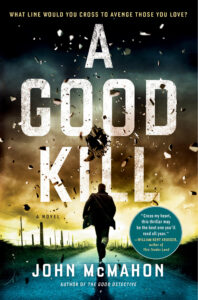Part 1
Anita was not afraid of many things. The day she killed the strange, gusik outsider had not bothered her. He had killed her husband. Some of the people say she had killed the killer. She didn’t mean to kill him, but he was a bad man. Her husband was a good man. It was right. The way Anita saw it, the bad man had killed himself by being foolish. But now, this noise she heard coming was like no noise she had ever heard before. She saw it on the distant horizon approaching like a duck flying straight and fast. Quickly, Anita pulled her fishing stick and line from the ice hole and slipped into the sled under her caribou robe, flipping the lighter tanned side up to blend in with the snow. The napping dogs, already burrowed into the snow, blended in well; the thing in the sky would not be able to see them unless the noisy thing had eagle eyes.
The sound in the sky was deafening, louder than an angry bear. Anita held her hands over her ears. As the sound decreased, she peeked out from the robe and watched the bird thing in the sky; it glided like an eagle, but if those were its wings they never moved. Taking its sound with it, the thing moved like a well-thrown spear until it faded into the gray sky. Never once did the wings move. It was nothing she had ever seen before and in these times it was wise to stay hidden. She thought it must be another thing from these Russians or these other people who had come to her land. These strange ones were strong and rude and knew little of the land. She recorded the sky thing well in her memory to be able to describe it to the people and warn them. The dogs had only cocked their ears at the noise but did not seem too alarmed, which gave Anita hope.
The thing in the sky did not come back. Anita went back to her ice fishing. When the sun was low on the horizon she woke the dogs, fed them, and drove the sled toward home. All of her snares had been pulled, the useful pieces stored on the sled. At this time of year in the far north, there would be light for several more hours. Summer was near and darkness had reduced itself. She had been gone most of the winter, yet it was still a distance back to her dugout, 8 or 10 hours by dog sled if the trail was good. Maybe she had stayed out too long at this time of year, she thought. It was a thing she had been thinking about for several days. For over a week she had rested the dogs but not herself. Sometimes it was becoming hard to concentrate on things, difficult to do things the proper way. Crossing the pass over the mountain range would be the worst as it had snowed several inches a few days ago coating the old snow and ice. It would not be easy to see thin ice or bad snow. The temperatures were warming, which meant soft, rotten snow and ice breaking up on the waters that her and the dogs could break through.
A greater danger may lie near her dugout and the people. Some people may still be looking for her. Some other people might be willing to turn her over to the gusiks. In recent years, people were doing strange things, and Anita was not like the other people of the region. She was only half related in some peoples’ eyes. The Athapaskan half of her had made her tall and the Yup’ik half had made her heavily boned. Her eyelids lacked the epicanthic folds of the Yup’ik Eskimos, but had given her skin a light color that turned to olive when weathered by the sun as opposed to the darker skin of an Athapaskan Indian. Her facial features were sculptured, lacking the flatter faces of the Yup’iks. She had inherited the best traits from each people. Being half-Indian and half-Eskimo she looked different to both races. To some she was beautiful; to others she was odd. She was strong and liked to be alone, which for some men was too much not like a woman. No other woman lived alone. Even women without children lived with their sisters or mothers or someone else. Most of the winter Anita tended to her snares, running dogs pulling a sled like an Athapaskan in the interior of Alaska. In the summer she tended her nets taking fish like a Yup’ik from the Bering Sea and the rivers. And she dressed like a man.
The dogs, sensing they were going toward home, were anxious, and they ran too fast. Anita slowed them with soft calls, lightly applying the brake and riding the runners. Her dogs, like trusted friends, listened to her every utterance. The only sound was the soft sliding of the sled’s rails and the paws of the six dogs trotting on the snow. The terrain was flat, white, covered with wind swept ridges of snow and ice. A few clumps of bushes could be seen in the distance along the edges of the drainages. The late evening sun reflected a red hue from the sky and onto the distant mountains foretelling a clear day ahead. Anita continued riding the sled rails because she was so very tired. The dogs were rested and fed, and she knew a moon would rise late this night allowing her to travel the short hours of darkness if she wished. As the day spent itself, the temperature dropped well below freezing making the snow firm. Yes, she would try to cross the pass tonight before the next day’s sun warmed the snow no matter how tired she was.
They made good time for five hours with short rests. At the foot of the mountains, a full moon reflecting off the snow, Anita and the dogs stopped. Now they had to cross the river and leads were already starting to show. The visible amount of her exhaling breath told her the temperature was continuing to drop, but it was difficult to know if the ice was clear, meaning safe, or frosty colored with cracks, meaning not safe. Two major leads in front of them presented open water over deep holes. Unhooking Alag, her lead dog, she walked along the bank a distance looking for a safer place to cross. Delighted to be free of the harness, the dog romped beside her. At a spot that looked solid, hanging onto a clump of grass on the bank, Anita tested the ice by stomping her foot and listening to the sound. She tried to pry a large rock from the bank to throw on the ice, but the ground was still too frozen.
“Alag, go,” she pointed. The dog obeyed and walked onto the ice, crossing to the other side. The weight of the dog would not tell her much about the thickness of the ice but it seemed solid under the inches of fresh snow. Anita then tested the ice underfoot and found that her 120 pounds did not cause cracking sounds near the edge, which is usually the thinnest ice. A third of a way across the river, she bent down to the ice and swiped away the fresh snow with her seal hide mittens. The ice beneath was slightly frosty, but it did not show any cracks. It might hold her, but would it hold the sled with the furs and the fresh meat from the caribou she had recently snared? Reading the evening sky, Anita forecast a warmer tomorrow making the ice less sure. If she remembered correctly, the river bottom at this spot was not too deep except for two holes. The night would not last long. Exhausted, she made her decision.
The dogs raced onto the ice. Running behind the sled and pushing hard, Anita shouted them on when she heard the ice crack beneath the runners. Her next step found open water, and she was instantly immersed up to her chest. The current beneath the ice drug at her mukluks and her seal skin pants. One hand gripped a runner of the sinking sled. She was stretched out; the dogs pulled her toward the shore while the current pulled her under the ice. Water went over her head. Her hand began to slip from her mitten just as one foot found bottom. Emerging from the water, she saw the dogs straining on the harness trying to free the sinking sled. Shouting encouragement to the dogs, she pushed hard off the bottom, found shallower water, put her weight behind the sled lifting it and shoving it toward shore. Abruptly, she was being drug across the ice, onto the shore and across the tundra, the dogs running madly, the sled bouncing behind them over drifts of snow. Her strength gone, she lost her grip. The last thing she saw from a shrew’s view inches from the surface of the cold, moonlit snow was the dog team and sled fading into night.
To Be Continued…..



